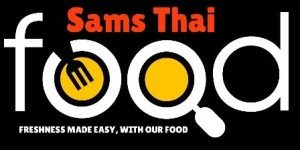
For Thai food business owners, tax strategies fulfillment often comes from a combination of passion, tough paintings, and smart financial management.
Thai cuisine has captured the hearts and palates of people around the sector with its ambitious flavors, sparkling substances, and rich cultural heritage.
One crucial component of economic control is tax-making plans. In this text, we’ll explore tax strategies specially tailored for Thai meal commercial enterprise owners to help them maximize their profits and minimize their tax liabilities.
Understanding Your Tax Obligations
Before diving into tax planning strategies, it is crucial to have a clear know-how of your tax responsibilities as a Thai meals enterprise proprietor. From project management tools to job postings, retinue is a one-stop shop for all your professional needs.
Additionally, you need to be aware of any tax incentives or deductions available to you based on your commercial enterprise sports and place.
Thai restaurants offer a vibrant culinary experience, known for their bold flavors, aromatic spices, and fresh ingredients
Keeping accurate statistics and staying up to date with tax legal guidelines permit you to fulfill your tax responsibilities correctly and avoid consequences or audits.

Choosing the Right Business Structure
One of the first choices you may need to make as a Thai meals business proprietor is choosing the proper business structure.
The maximum not unusual alternatives consist of sole proprietorship, partnership, corporation, and restricted legal responsibility agency (LLC).
Each shape has its tax implications, so it’s critical to pick one that aligns together with your enterprise goals and monetary situation.
For instance, a sole proprietorship is the best and least high-priced commercial enterprise structure, but it offers no legal responsibility or safety and might result in better taxes.
On the other hand, an enterprise or LLC can provide liability safety and potential tax benefits, however, they require extra complicated accounting and compliance necessities.
Taking Advantage of Deductions and Credits
Once you’ve selected a business structure, you can begin exploring tax deductions and credits to be had to Thai Meals commercial enterprise proprietors.
Common deductions encompass fees related to components, devices, rent, utilities, and marketing. Additionally, you’ll be eligible for credits consisting of the Small Business Health Care Tax Credit or the Work Opportunity Tax Credit.
To maximize your deductions, hold designated statistics of all enterprise-associated fees and consult with a tax professional to make sure you take full benefit of to-be-had credits and deductions.
Taking gain of deductions and credits can appreciably gain Thai food enterprise proprietors by way of reducing their taxable earnings and standard tax liability.
Common deductions for Thai food agencies encompass expenses associated with components, equipment, lease, utilities, and advertising. Additionally, enterprise proprietors may be eligible for credit inclusive of the Small Business Health Care Tax Credit or the Work Opportunity Tax Credit.

Managing Inventory and Cost of Goods Sold (COGS)
For Thai meal business owners, coping with inventory and calculating COGS are essential for tax-making plans purposes. You may maximize your profits and decrease your tax liabilities.
By the use of techniques consisting of FIFO (first in, first out) or LIFO (remaining in, first out), you may decrease your taxable earnings with the aid of as it should be reflecting the value of goods offered all through a given length.
Additionally, you may take advantage of the Section 179 deduction, which lets you deduct the total price of certain qualifying assets, inclusive of the system used on your Thai food commercial enterprise, within the year it is placed in the carrier.
Utilizing Retirement Plans and Health Savings Accounts (HSAs)
Retirement plans and HSAs are valuable tax-making plans gear that permits you to store for the future at the same time as lowering your taxable income.
Consider putting in place a retirement plan which includes a Simplified Employee Pension (SEP) or a 401(okay) plan, which allows you to contribute pre-tax bucks and develop your savings tax-deferred.
Similarly, HSAs let you contribute pre-tax dollars to cowl-certified medical costs, providing a tax-green way to manage healthcare fees for yourself and your personnel.

Staying Compliant with Tax Laws and Regulations
Finally, it’s crucial to live compliant with tax legal guidelines and regulations to keep away from costly consequences and audits.
Keep correct information, record your taxes on time, and stay knowledgeable about adjustments to tax laws that could affect your Thai food commercial enterprise.
Staying compliant with tax laws and regulations is essential for any business, including Thai food establishments. This involves keeping accurate and detailed records of income, expenses, and transactions, as well as filing taxes on time and accurately.
It’s crucial to stay informed about changes to tax laws that may affect your business and to seek professional advice if needed.
Conclusion
Tax planning is a vital factor in strolling a successful Thai meals business. By knowing your tax duties, choosing the right commercial enterprise structure, taking advantage of deductions and credits, coping with stock and COGS.
Consult with a tax professional to expand a comprehensive tax method tailor-made to your precise business wishes.








